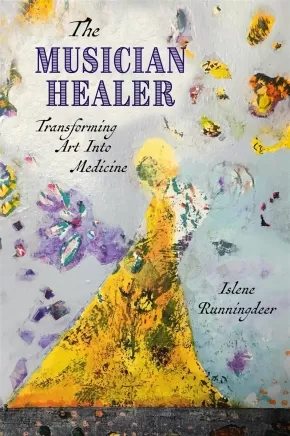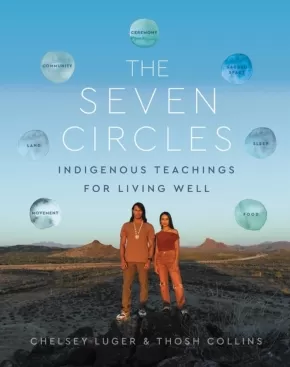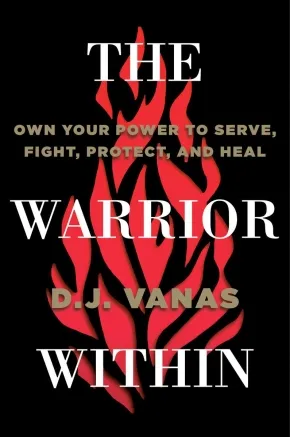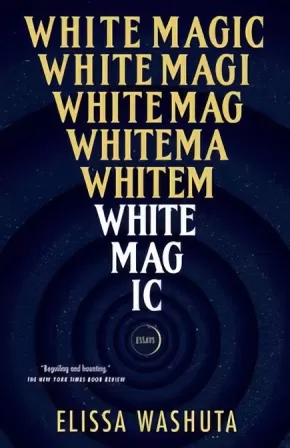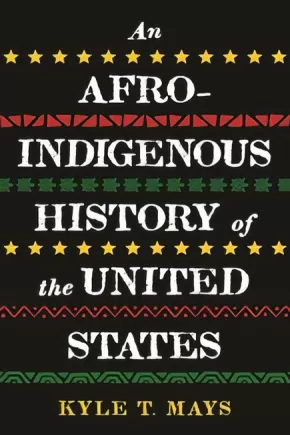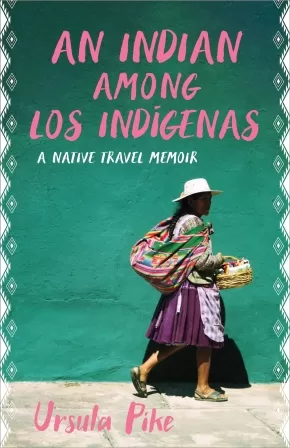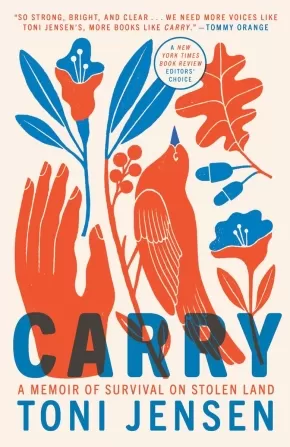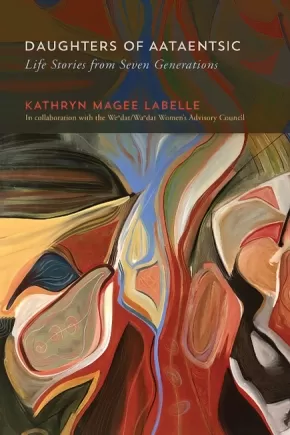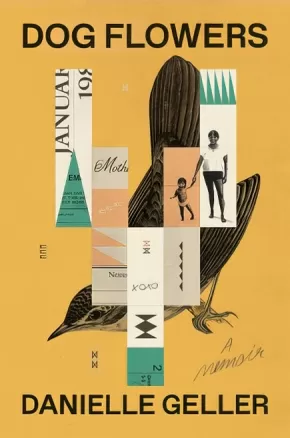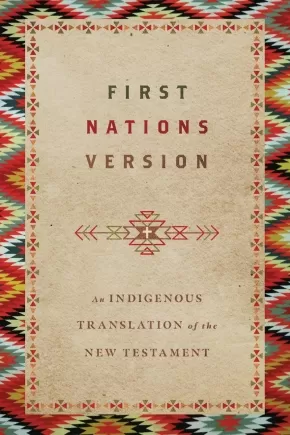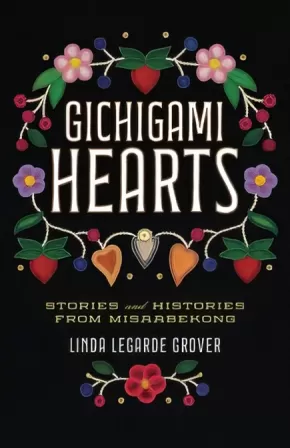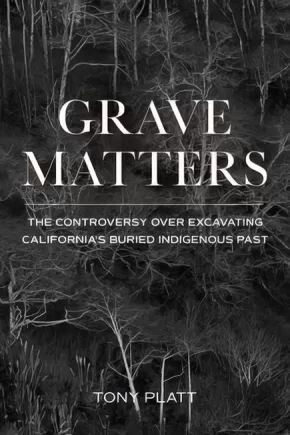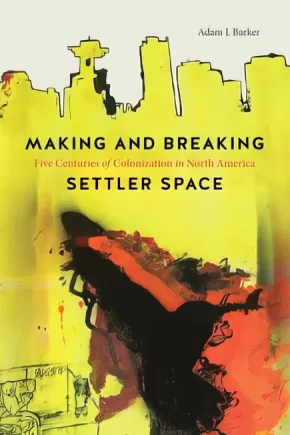
Indigenous Peoples in the United States
61
-
75
of
125 Results;
Sort By
Go To
of 9
Seven Aunts
$30.99
Format:
Paperback
Text Content Territories:
Indigenous American; Native American; Anishinaabeg;
Reading Level: N/A
ISBN / Barcode: 9781517912857
Synopsis:
Synopsis:
Part memoir, part cultural history, these memories of seven aunts holding home and family together tell a crucial, often overlooked story of women of the twentieth century.
They were German and English, Anishinaabe and French, born in the north woods and Midwestern farm country. They moved again and again, and they fought for each other when men turned mean, when money ran out, when babies—and there were so many—added more trouble but even more love. These are the aunties: Faye, who lived in California, and Lila, who lived just down the street; Doreen, who took on the bullies taunting her “mixed-blood” brothers and sisters; Gloria, who raised six children (no thanks to all of her “stupid husbands”); Betty, who left a marriage of indenture to a misogynistic southerner to find love and acceptance with a Norwegian logger; and Carol and Diane, who broke the warped molds of their own upbringing.
From the fabric of these women’s lives, Staci Lola Drouillard stitches a colorful quilt, its brightly patterned pieces as different as her aunties, yet alike in their warmth and spirit and resilience, their persistence in speaking for their generation. Seven Aunts is an inspired patchwork of memoir and reminiscence, poetry, testimony, love letters, and family lore.
In this multifaceted, unconventional portrait, Drouillard summons ways of life largely lost to history, even as the possibilities created by these women live on. Unfolding against a personal view of the settler invasion of the Midwest by men who farmed and logged, fished and hunted and mined, it reveals the true heart and soul of that history: the lives of the women who held together family, home, and community—women who defied expectations and overwhelming odds to make a place in the world for the next generation.
Reviews
"Seven Aunts is a celebration of the women in Staci Lola Drouillard’s family who struggled to escape a daunting legacy with unsung courage, humor, and unbreakable love for family. Far more than a family history, Seven Aunts is an honor song that reveals the everyday heroism of these women’s lives."—Diane Wilson, author of The Seed Keeper
"Seven Aunts gives us a unique and privileged insight to the intimate lives and history of a blended Indigenous and immigrant family in northern Minnesota. Staci Lola Drouillard has written with honesty and truth about ‘the treacherous beauty of life’ in a family rich in characters, in love and loss, all with great humor. Anaïs Nin wrote that reaching deep into the personal becomes universal. Seven Aunts is exactly that. It speaks to us of the universal love of family, the reality of historic social challenges, and the strength of the unbreakable bonds of knowing."—Hazel Belvo
Additional Information
320 pages | 5.50" x 8.50" | 7 b&w illustrations | Paperback
The Musician Healer: Transforming Art into Medicine
$24.95
Format:
Paperback
Text Content Territories:
Indigenous American; Native American; Abenaki (Wabanaki); Mi'kmaq;
Reading Level: N/A
ISBN / Barcode: 9781988824864
Synopsis:
Synopsis:
The Musician Healer resurrects a long-forgotten role for musicians and provides clear guidance for preparation and self-development as a musician healer in order to reactivate this role for the modern world. It begins with the author’s personal musical story that draws upon her Mi’kmaq/Abenaki First Nation and French roots, followed by a section on the history of musician healers from ancient Egypt and India. Runningdeer then explores the energetic aspects of music healing, especially the quality of personal energies that a musician channels through her music, and how to elevate and emanate those vibrations for positive healing outcomes.
“There are a few very particular aspects of healing for myself that I’ve enjoyed these past twenty plus years, while developing my work as Musician Healer. Yours will be different, perhaps, depending upon what your own inner challenges to growth have been. Our stories are different, after all ... I now know who I am, and why I’m here. I love and accept all my strengths, peculiarities and tender places. And feel great confidence in what I have to offer the world.” — Islene Runningdeer, 2022
Reviews
"Runningdeer writes like a spider spinning her web—circling and diving, drawing sticky connections and mind-expanding shapes. This book is an offering to a suffering world and to musicians who are yearning to transmit good through their gifts." — Mary Bonhag, Artistic Director, Scrag Mountain Music
"The beauty of the objective frequency in music to provide healing and love is excellently transmitted in this unique text. A heartfelt and genuine connection with ancient lifetimes and ancestors brings moments of perfection and clarity, as the sum total of everything acquired is realized in the present moment. Runningdeer brings lessons of giving and awareness in service to the light." — Julian Hobson Energy Healer and Editor of Embrace Your Divine Plan (2023)
Additional Information
208 pages | 6.00" x 9.00" | Paperback
The Seven Circles: Indigenous Teachings for Living Well
$36.99
Format:
Hardcover
Text Content Territories:
Indigenous American; Native American; Sioux; Pima (Akimel O'odham); Osage; Haudenosaunee (Iroquois); Seneca; Cayuga; Anishinaabeg; Ojibwe (Chippewa); Turtle Mountain Anishinaabe;
Grade Levels: 12; University/College;
ISBN / Barcode: 9780063119208
Synopsis:
Synopsis:
In this revolutionary self-help guide, two beloved Native American wellness activists offer wisdom for achieving spiritual, physical, and emotional wellbeing rooted in Indigenous ancestral knowledge.
When wellness teachers and husband-wife duo Chelsey Luger and Thosh Collins founded their Indigenous wellness initiative, Well for Culture, they extended an invitation to all to honor their whole self through Native wellness philosophies and practices. In reclaiming this ancient wisdom for health and wellbeing—drawing from traditions spanning multiple tribes—they developed the Seven Circles, a holistic model for modern living rooted in timeless teachings from their ancestors. Luger and Collins have introduced this universally adaptable template for living well to Ivy league universities and corporations like Nike, Adidas, and Google, and now make it available to everyone in this wise guide.
The Seven Circles model comprises interconnected circles that keep all aspects of our lives in balance, functioning in harmony with one another. They are:
- Food
- Movement
- Sleep
- Ceremony
- Sacred Space
- Land
- Community
In The Seven Circles, Luger and Collins share intimate stories from their life journeys growing up in tribal communities, from the Indigenous tradition of staying active and spiritually centered through running and dance, to the universal Indigenous emphasis on a light-filled, minimalist home to create sacred space. Along the way, Luger and Collins invite readers to both adapt these teachings to their lives as well as do so without appropriating and erasing the original context, representing a critical new ethos for the wellness space. Each chapter closes with practical advice on how to engage with the teachings, as well as wisdom for keeping that particular circle in harmony with the others.
With warmth and generosity—and 75 atmospheric photographs by Collins throughout—The Seven Circles teaches us how to connect with nature, with our community, and with ourselves, and to integrate ancient Indigenous philosophies of health and wellbeing into our own lives to find healing and balance.
Reviews
“A life-changing holistic guide to wellness rooted in empowerment, resiliency, and ‘good medicine.’ This book is for any human being searching for wellness solutions in a chaotic world, a true antidote to colonization.” — Vina Brown, Indigenous Scholar, Entrepreneur, Artist, and Professor of Indigenous Studies at Northwest Indian College
“The Seven Circles is a true innovation in Indigenous thought; it brings our shared heritage and traditional teachings to life. Truly inspiring. Readers will find their journey to be a motivating guide for self-transformation.” — Taiaiake Alfred, Mohawk Philosopher
“While the term ‘wellness’ has been co-opted and diluted by (primarily white) social media influencers in recent years, Luger and Collins are recentering the conversation around how to use Indigenous cultural values, foods, and modalities of movement as tools for spiritual, mental, physical, and emotional healing.” — Vanity Fair
“[Two of the] faces in the health and wellness scene that are pushing for inclusivity, justice, and kindness, toppling old conventions to make their own…Luger and Collins rewrite modern narratives regarding Native health while addressing complex histories and ongoing disparities.” — Outside magazine
“Spellbinding. This may be the first book I’ve ever read that made me stop and decide, “I’m making this change now!” Seven Circles opened my eyes to a way of life that is tested by time, guided by nature, and urgently needed today." — Christopher McDougall, author of Born to Run, Natural Born Heroes, and Running with Sherman
“Wisdom abounds in this stimulating offering.” — Publishers Weekly
“Luger and Collins provide a range of sensible, informed, accessible guidance for both small- and large-scale lifestyle changes. An appealing manual for healing the self through Indigenous traditions.” — Kirkus Reviews
Additional Information
256 pages | 7.00" x 9.00" | 75 Colour Photos | Hardcover
The Warrior Within: Own Your Power to Serve, Fight, Protect, and Heal
$39.00
Format:
Hardcover
Text Content Territories:
Indigenous American; Native American;
Reading Level: N/A
ISBN / Barcode: 9780593423011
Synopsis:
Synopsis:
A transformational guide to getting yourself right in order to accomplish the work you were meant to do, from speaker, former U.S. Air Force officer, and member of the Ottawa tribe D.J. Vanas.
When faced with an important job, and people depending on you to do it, most of us will give and give until there’s nothing left. But running on empty, even for a worthy cause, only sets you up for failure in the long run. To persevere on the path to success requires more than sheer fearlessness and willpower. It requires what D.J. Vanas calls the warrior spirit, the kind of strength that looks outward but comes from deep within.
Drawing inspiration from Native American philosophy and tradition, The Warrior Within outlines a new model for personal power in the face of overwhelming chaos. A true warrior is not the toughest or bravest person in the room. A true warrior is committed to self-mastery, knows how to navigate change and disruption, transforms setbacks into opportunities for achievement, refuses to quit, and most importantly, always fights for something bigger than the self. With a vast array of stories and examples, from vision quests to treacherous hikes to veterans and service providers at the front lines, Vanas shows how to apply these principles to transform how you show up both for yourself and those around you.
More than an empowerment manual, The Warrior Within is a call to accomplish the world-changing work you were meant for by tapping into the power of the warrior spirit.
Reviews
"The powerful lessons imparted in these chapters will inspire strength, confidence and motivation, so that you can deliver your best in the worst of circumstances—while keeping your sanity and health! I encourage every healthcare giver to read The Warrior Within, for they truly serve, fight, protect and heal every day, often at their own expense."--LeAnn Thieman, author of the Chicken Soup for Nurse’s Soul series and founder of SelfCare for HealthCare®
"I highly recommend The Warrior Within! Through great storytelling, D.J. Vanas shares an often overlooked element of leadership ... taking care of yourself. Our beautiful Anishinaabe teachings emphasize balance in all things. Being a warrior means recognizing your needs and honoring your gifts. Way to go, D.J.!"--Angeline Boulley (Sault Ste. Marie Tribe of Chippewa Indians) New York Times bestselling author of Firekeeper's Daughter
"D.J. Vanas inspires us to find our ‘warrior spirit’ of courage, perseverance, resilience, and teamwork in life’s most fearful times. Your heart will soar like an eagle as you read how ordinary heroes use this inner strength to serve others—and how we can learn to do the same.”--Joseph Pfeifer, FDNY Assistant Chief, retired, author of Ordinary Heroes
“This is it: the book I’ve been waiting for! There isn’t another on the market that applies indigenous principles and ideas in order to expose the warrior in you. A comprehensive, compelling, emotional and amazingly insightful book. I couldn’t put it down. I wish I had this book years ago!"--Juanita Mullen (Seneca), AI/AN Veterans Liaison, Department of Veterans Affairs
“DJ Vanas describes a life of leading and doing through Indigenous identity and values. Combining his personal story with advice, The Warrior Within is more than a leadership book. It is a story of living a life of abundance and rich relationships, with DJ as your terrific guide.”-Cheryl Crazy Bull, President & CEO, American Indian College Fund
Additional Information
256 pages | 5.72" x 8.57" | Hardcover
White Magic (PB)
$23.95
Format:
Paperback
Text Content Territories:
Indigenous American; Native American; Salish; Coast Salish; Cowlitz;
ISBN / Barcode: 9781953534019
Synopsis:
Synopsis:
Throughout her life, Elissa Washuta has been surrounded by cheap facsimiles of Native spiritual tools and occult trends, “starter witch kits” of sage, rose quartz, and tarot cards packaged together in paper and plastic. Following a decade of abuse, addiction, PTSD, and heavy-duty drug treatment for a misdiagnosis of bipolar disorder, she felt drawn to the real spirits and powers her dispossessed and discarded ancestors knew, while she undertook necessary work to find love and meaning.
In this collection of intertwined essays, she writes about land, heartbreak, and colonization, about life without the escape hatch of intoxication, and about how she became a powerful witch. She interlaces stories from her forebears with cultural artifacts from her own life—Twin Peaks, the Oregon Trail II video game, a Claymation Satan, a YouTube video of Stevie Nicks and Lindsey Buckingham—to explore questions of cultural inheritance and the particular danger, as a Native woman, of relaxing into romantic love under colonial rule.
Reviews
"A fascinating magic trick of a memoir that illuminates a woman's search for meaning." —Kirkus, Starred Review
"Washuta’s frank confrontations with, and acknowledgments of, unhealed wounds are validating. . . . evoking the sense of peeling open a letter from an estranged friend. A poignant work by a rising essayist."—Foreword Reviews, Starred Review
"Her prose is crisp and precise, and the references hit spot-on. . . . Fans of the personal essay are in for a treat."—Publishers Weekly
"Powerful. . . . Washuta’s essays refuse the mandate of a tidy resolution. Instead she circles around each subject, inspecting it as symbol, myth, metaphor, and reality, all while allowing her readers space to draw their own conclusions, or to reject the need for any conclusion at all. Like a stage magician, she asks readers to look again. White Magic is an insightful, surprising, and eloquent record of stories of magic and the magic in stories." —Booklist
"Washuta's story and struggles become a metaphor for the toll of colonialism on generations of Indigenous people like herself. Readers of recovery narratives, women's issues, and keenly observed social commentary will be rewarded here."—Library Journal
"White magic, red magic, Stevie Nicks magic—this is Elissa Washuta magic, which is a spell carved from a life, written in blood, and sealed in an honesty I can hardly fathom." —Stephen Graham Jones, author of The Only Good Indians
"White Magic is funny and wry, it’s thought-provoking and tender. It’s a sleight of hand performed by a true master of the craft. White Magic is magnificent and Elissa Washuta is spellbinding. There is no one else like her." —Kristen Arnett, author of Mostly Dead Things
"These pages are windows into a black lodge where Twin Peaks and Fleetwood Mac are on repeat—sometimes forward, sometimes backwards, sometimes in blackout blur. I stand in awe of everything here. What an incredible and wounding read."—Richard van Camp, author of The Lesser Blessed
Additional Information
Paperback
An Afro-Indigenous History of the United States
$36.95
Format:
Hardcover
Text Content Territories:
Indigenous American; Native American; Anishinaabeg; Ojibwe (Chippewa); Saginaw Chippewa ;
Reading Level: N/A
ISBN / Barcode: 9780807011683
Synopsis:
Synopsis:
The first intersectional history of the Black and Native American struggle for freedom in the United States that also reframes our understanding of who was Indigenous in early America.
Beginning with pre-Revolutionary America and moving into the movement for Black lives and contemporary Indigenous activism, Afro-Indigenous historian, Kyle T. Mays argues that the foundations of the US are rooted in antiblackness and settler colonialism, and that these parallel oppressions continue into the present. He explores how Black and Indigenous peoples have always resisted and struggled for freedom, sometimes together, and sometimes apart. Whether to end African enslavement and Indigenous removal or eradicate capitalism and colonialism, Mays show how the fervor of Black and Indigenous peoples calls for justice have consistently sought to uproot white supremacy.
Mays uses a wide-array of historical activists and pop culture icons, “sacred” texts, and foundational texts like the Declaration of Independence and Democracy in America. He covers the civil rights movement and freedom struggles of the 1960s and 1970s, and explores current debates around the use of Native American imagery and the cultural appropriation of Black culture. Mays compels us to rethink both our history as well as contemporary debates and to imagine the powerful possibilities of Afro-Indigenous solidarity.
Reviews
“Nuanced and illuminating, this book is a worthy addition to a remarkable series.”—Booklist
“This book reveals uncomfortable truths about the dehumanizing legacies of both capitalism and colonialism while forging a path of reconciliation between the Black and Native communities. Mays offers a solid entry point for further study. An enlightening reexamination of American history.” —Kirkus Reviews
“Accessible and informative . . . Mays’s colloquial voice enlivens the often-distressing history . . . This immersive revisionist history sheds light on an overlooked aspect of the American past.”—Publishers Weekly
“This is a bold and original narrative that is required reading to comprehend the deep historical relationship between the Indigenous peoples who were transported from Africa into chattel slavery and the Indigenous peoples who were displaced by European settler colonialism to profit from the land and resources, two parallel realities in search of self-determination and justice.” —Roxanne Dunbar-Ortiz, author of An Indigenous Peoples’ History of the United States
“A bold, innovative, and astute analysis of how Blackness and Indigeneity have been forged as distinct yet overlapping social locations through the needs of capital, the logic of the nation-state, and the aims of US empire. While we know that slavery and settler colonialism are intricately linked, Kyle Mays uniquely demonstrates that the afterlives of these two institutions are also linked. They provide the land, bodies, and capital for ‘newer’ systems of bondage to flourish, such as mass incarceration. You will never think of the peoples’ history the same way after reading An Afro-Indigenous History of the United States.” —Robin D. G. Kelley, author of Freedom Dreams: The Black Radical Imagination
“Dr. Mays brilliantly makes accessible the knowledge of how Native, Black, and Afro-Indigenous communities, under the oppressive projects of settler colonialism and white supremacy, have navigated points of tension and harm, while simultaneously revealing instances when we’ve resisted by way of solidarity and allyship. Ultimately, he reminds us that both the ‘Indian problem’ and the ‘Negro problem’ are, in fact, a white supremacist problem.”—Melanin Mvskoke, Afro-Indigenous (Mvskoke Creek) activist
Additional Information
272 pages | 6.25" x 9.35" | Hardcover
An Indian among los Indígenas: A Native Travel Memoir (HC) (5 in Stock)
$39.95
Format:
Hardcover
Text Content Territories:
Indigenous American; Native American; Karuk; Indigenous South American; Indigenous Peoples in Bolivia;
Grade Levels: 12; University/College;
ISBN / Barcode: 9781597145275
Synopsis:
Synopsis:
A gripping, witty memoir about indigeneity, travel, and colonialism
When she was twenty-five, Ursula Pike boarded a plane to Bolivia and began her term of service in the Peace Corps. A member of the Karuk Tribe, Pike sought to make meaningful connections with Indigenous people halfway around the world. But she arrived in La Paz with trepidation as well as excitement, “knowing I followed in the footsteps of Western colonizers and missionaries who had also claimed they were there to help.” In the following two years, as a series of dramatic episodes brought that tension to boiling point, she began to ask: what does it mean to have experienced the effects of colonialism firsthand, and yet to risk becoming a colonizing force in turn?
An Indian among los Indígenas, Pike’s memoir of this experience, upends a canon of travel memoirs that has historically been dominated by white writers. It is a sharp, honest, and unnerving examination of the shadows that colonial history casts over even the most well-intentioned attempts at cross-cultural aid. It is also the debut of an exceptionally astute writer with a mastery of deadpan wit. It signals a shift in travel writing that is long overdue.
Reviews
“A brutally honest and badly needed story. . . Witty and clearly written, this memoir is a must-read, not just for Peace Corps volunteers, anthropologists, and others working in foreign lands, but for everyone—all of us finding ourselves in an ever increasing diverse and complex cultural landscape.”—Greg Sarris, author of How a Mountain was Made
“Ursula Pike's memoir is unlike any other I've read, with her perceptive, always-seeking, and lovely narrative voice. . . No one's written about the Peace Corps like this, with the details of food and family and landscape told through the vision of an Indigenous woman finding new stories in a deeply-rooted place miles from her own.”—Susan Straight
“In Ursula Pike’s perceptive and poignant debut memoir, a North American Indian woman knowingly enters the complex dynamics of voluntourism and discovers aspects about her own identity, colonialism, and comparative privilege while navigating the vivid landscapes and personalities of a small Bolivian community in the Andes.”—Chip Livingston, author of Crow-Blue, Crow-Black
“The Indigenous peoples Pike lived and worked with speak loudly from these pages, challenging many of us to check privileges we didn’t know we had, demanding the right to be complex, strong, and human. This book is all heart, all vulnerability, as a young California Indian woman makes family far from home.”—Deborah Miranda, author of Bad Indians: A Tribal Memoir
Additional Information
240 pages | 5.50" x 8.50"
Carry: A Memoir of Survival on Stolen Land
$24.00
Format:
Paperback
Text Content Territories:
Indigenous American; Métis;
Grade Levels: 12; University/College;
ISBN / Barcode: 9781984821201
Synopsis:
Synopsis:
Toni Jensen grew up around guns: As a girl, she learned to shoot birds in rural Iowa with her father, a card-carrying member of the NRA. As an adult, she’s had guns waved in her face near Standing Rock, and felt their silent threat on the concealed-carry campus where she teaches. And she has always known that in this she is not alone. As a Métis woman, she is no stranger to the violence enacted on the bodies of Indigenous women, on Indigenous land, and the ways it is hidden, ignored, forgotten.
In Carry, Jensen maps her personal experience onto the historical, exploring how history is lived in the body and redefining the language we use to speak about violence in America. In the title chapter, Jensen connects the trauma of school shootings with her own experiences of racism and sexual assault on college campuses. “The Worry Line” explores the gun and gang violence in her neighborhood the year her daughter was born. “At the Workshop” focuses on her graduate school years, during which a workshop classmate repeatedly killed off thinly veiled versions of her in his stories. In “Women in the Fracklands,” Jensen takes the reader inside Standing Rock during the Dakota Access Pipeline protests and bears witness to the peril faced by women in regions overcome by the fracking boom.
In prose at once forensic and deeply emotional, Toni Jensen shows herself to be a brave new voice and a fearless witness to her own difficult history—as well as to the violent cultural landscape in which she finds her coordinates. With each chapter, Carry reminds us that surviving in one’s country is not the same as surviving one’s country.
Reviews
“Like a murmuration of starlings, Toni Jensen’s new book Carry changes its shape constantly and effortlessly. . . . The value of Carry lies in its unique structure, its sparse, powerful prose, and in the stinging perspective it provides on events that are numbingly common. Until we see it as clearly as Jensen does, the lens she offers on gun violence in America will be relevant again and again and again.”—Chicago Review of Books
“In Carry, Jensen scours language to find a new way of writing about how historical injustices seep into the present. . . . With a controlled voice like a Philip Glass composition, smooth, meandering yet repetitive, Jensen considers her troubled past and begins the work of stitching herself back together. . . . An unsettling account that creeps into your bones.”—The New York Times Book Review
“Toni Jensen grew up around guns. But bird-hunting with her father was a much different experience than staring down bored barrels at Standing Rock. A new and much-needed voice, Métis author Jensen shares her deepest thoughts and most emotional experiences in Carry.”—Bustle
“Toni Jensen’s memoir is stunning. There’s no other words that come to mind—it’s about growing up Métis, existing as an Indigenous woman in America, and the looming threat of ever-pervasive gun violence. . . . A must-read.”—Alma (Alma’s Favorite Books for Fall 2020)
“Moving between personal recollections and historical observations, Jensen narrates what it means to be Métis, and what it feels like to be connected by bodies and land. . . . A meditative exploration of people and place that shows what it means to live and survive.”—Library Journal
“[A] debut memoir from a Native author enmeshed in the American way of violence, alienation, and death . . . a powerful rejection of a culture that has always been grounded in violence and intimidation.”—Kirkus Reviews
“Carry explores the gun’s tragic impact with heartfelt prose and deep intellect—on politics, on history, on Black and Indigenous bodies, on women’s bodies, and on children behind closed doors . . . It is full of difficult and vital news, delivered right on time.”—Terese Marie Mailhot, New York Times bestselling author of Heart Berries
Additional Information
304 pages | 5.24" x 7.94" | Paperback
Daughters of Aataentsic: Life Stories from Seven Generations
$40.95
Format:
Hardcover
Text Content Territories:
Indigenous Canadian; First Nations; Huron-Wendat (Ouendat); Indigenous American; Native American; Huron-Wendat (Ouendat);
Grade Levels: University/College;
ISBN / Barcode: 9780228005292
Synopsis:
Synopsis:
Daughters of Aataentsic highlights and connects the unique lives of seven Wendat/Wandat women whose legacies are still felt today. Spanning the continent and the colonial borders of New France, British North America, Canada, and the United States, this book shows how Wendat people and place came together in Ontario, Quebec, Michigan, Ohio, Kansas, and Oklahoma, and how generations of activism became intimately tied with notions of family, community, motherwork, and legacy from the seventeenth to the twenty-first century. The lives of the seven women tell a story of individual and community triumph despite difficulties and great loss. Kathryn Magee Labelle aims to decolonize the historical discipline by researching with Indigenous people rather than researching on them. It is a collaborative effort, guided by an advisory council of eight Wendat/Wandat women, reflecting the needs and desires of community members. Daughters of Aataentsic challenges colonial interpretations by demonstrating the centrality of women, past and present, to Wendat/Wandat culture and history. Labelle draws from institutional archives and published works, as well as from oral histories and private collections. Breaking new ground in both historical narratives and community-guided research in North America, Daughters of Aataentsic offers an alternative narrative by considering the ways in which individual Wendat/Wandat women resisted colonialism, preserved their culture, and acted as matriarchs.
Reviews
"Daughters of Aataentsic makes a significant contribution to the historiography of Indigenous women. Labelle has written an important book and her laudatory and exemplary methodology is a model for all people researching and writing on First Nations and Native Americans." — Clifford Trafzer, University of California, Riverside
"Daughters of Aataentsic enriches our understanding of the everyday lives of real women, their families, and communities across time in Quebec and parts of the southwestern and western United States. This book does not denounce the past, holler, and shout, but rather attends to the range of information and knowledge passed down to draw us into times and places we would otherwise not have the privilege of knowing from an Indigenous perspective. Its insights have stuck with me long after my first reading, as I expect they will for others." — Jean Barman, University of British Columbia
Educator Information
Table of Contents
Acknowledgments xiii
Figures xv
Map xxvi
Introduction 3
1 Cécile Gannendâris (?-1669) 13
2 Marie Catherine Jean dit Vien (1676-1767) 33
3 Margaret Grey Eyes Solomon (1816-1890) 50
4 Mary McKee (1838-1922) 69
5 Eliza Burton Conley Jr (1869-1946) 90
6 Jane Zane Gordon (1871-1963) 115
7 Dr Éléonore Sioui (1924-2006) 132
Epilogue: The Wendat/Wandat Women’s Advisory Council 154
Notes 169
Index 205
Recommended for these subjects: History, Women's History, North American History, Canadian History, Indigenous History, Indigenous Studies, Women's and Gender Studies.
Additional Information
240 pages | 6.00" x 9.00" | 21 Photos, 7 Diagrams
Decolonizing Wealth: Indigenous Wisdom to Heal Divides and Restore Balance - 2nd Edition
$28.95
Format:
Paperback
Text Content Territories:
Indigenous American; Native American;
Grade Levels: University/College;
ISBN / Barcode: 9781523091416
Synopsis:
Synopsis:
This second edition expands the provocative analysis of the racist colonial dynamics at play in philanthropy and finance into other sectors and offers practical advice on how anyone can be a healer.
The world is out of balance. With increasing frequency, we are presented with the inescapable truth that systemic racism and colonial structures are foundational principles to our economies. The $1 trillion philanthropic industry is one example of a system that mirrors oppressive colonial behavior. It’s an industry whose name means “the love for humankind,” yet it does more harm than good.
In Decolonizing Wealth, Edgar Villanueva looks past philanthropy’s glamorous, altruistic façade and into its shadows: white supremacy, savior complexes, and internalized oppression. Across history and to the present day, the accumulation of wealth is steeped in trauma. How can we shift philanthropy toward social reconciliation and healing if the cornerstones are exploitation, extraction, and control?
Drawing from Native traditions, Villanueva empowers individuals and institutions to begin to repair the damage through his Seven Steps to Healing. In this second edition, Villanueva adds inspiring examples of people using their resources to decolonize entertainment, museums, libraries, land ownership, and much more.
Everyone can be a healer and a leader in restoring balance—and we need everyone to do their part. As Villanueva writes, “All our suffering is mutual. All our healing is mutual. All our thriving is mutual.” Are you ready?
Reviews
“Edgar outlines with compassion and clarity thoughtful and practical steps toward aligning our money with our values. There are important lessons here for anyone working in finance or philanthropy.” —Keith Mestrich, President and CEO, Amalgamated Bank
“Decolonizing Wealth is a must-read for philanthropists and donors looking to achieve the change we want to see in the world. Compelling, honest, and kind, Edgar is clear that we must free funding resources and the philanthropic sector itself from frameworks that further exacerbate the problems rather than bring us closer to identifying and activating the solutions.”—Alicia Garza, co-creator of Black Lives Matter Global Network, and Principal, Black Futures Lab
“Edgar has broken through the tired jargon of philanthropy-speak and written a fresh, honest, painful, and hopeful book, grounded in his own truths and Native traditions. He offers some radical thinking about what it would take to bring about a world where power and accountability shifted and communities controlled the resources vital to their strength and futures.”—Gara LaMarche, President, Democracy Alliance; former President, Atlantic Philanthropies; and former Vice President and Director of US Programs, Open Society Foundations
“Due to years of detrimental federal Indian policy and discriminatory economic systems, Native American communities have been marginalized and left out of the economic opportunity experienced by other Americans. Edgar offers a new vision and an Indigenous perspective that can put us on a better path. Everyone should read Decolonizing Wealth, especially those who control the flow of resources in government, philanthropy, and finance.”—LaDonna Harris (Comanche), politician, activist, and founder of Americans for Indian Opportunity
“Decolonizing Wealth offers a refreshing and inspired look at how wealth can better serve the needs of communities of color and atone for the ways in which it has traditionally been used to inflict harm and division. Using a solutions-oriented framing, Edgar makes a solid case for how Indigenous wisdom can be used as a guiding light to achieve greater equity in the funding and philanthropic world.”—Kevin Jennings, President, Tenement Museum
“Finally, a Native perspective on how to heal internal systemic challenges. Decolonizing Wealth not only is an unflinching examination of today’s philanthropic institutions and the foundations upon which they were built but also offers critical wisdom applicable to many sectors.” —Sarah Eagle Heart (Lakota), CEO, Native Americans in Philanthropy
“We should all be grateful to Edgar Villanueva for helping us understand, by sharing Indigenous wisdom, that there is a path toward a more transformative approach to wealth, to investment, and to giving. We cannot truly call ourselves ethical, progressive, or mission-aligned investors until we have wrestled honestly with the fundamental issues raised in this book.”—Andrea Armeni, co-founder and Executive Director, Transform Finance
Additional Information
240 pages | 5.56" x 8.50" | Paperback
Dog Flowers: A Memoir (HC) (4 in Stock)
$36.00
Format:
Hardcover
Text Content Territories:
Indigenous American; Native American; Navajo (Diné); Tsi’naajinii (Black Streaked Wood People);
ISBN / Barcode: 9781984820396
Synopsis:
Synopsis:
A daughter returns home to the Navajo reservation to retrace her mother’s life in a memoir that is both a narrative and an archive of one family’s troubled history.
When Danielle Geller’s mother dies of alcohol withdrawal during an attempt to get sober, Geller returns to Florida and finds her mother’s life packed into eight suitcases. Most were filled with clothes, except for the last one, which contained diaries, photos, and letters, a few undeveloped disposable cameras, dried sage, jewelry, and the bandana her mother wore on days she skipped a hair wash.
Geller, an archivist and a writer, uses these pieces of her mother’s life to try and understand her mother’s relationship to home, and their shared need to leave it. Geller embarks on a journey where she confronts her family's history and the decisions that she herself had been forced to make while growing up, a journey that will end at her mother's home: the Navajo reservation.
Dog Flowers is an arresting, photo-lingual memoir that masterfully weaves together images and text to examine mothers and mothering, sisters and caretaking, and colonized bodies. Exploring loss and inheritance, beauty and balance, Danielle Geller pays homage to our pasts, traditions, and heritage, to the families we are given and the families we choose.
Reviews
“Dog Flowers by Danielle Geller is a journey story we’ve never read before. Geller travels through snippets of her own life and that of her mother’s, creating a narrative where all roads lead to her mother’s home in the Navajo Nation. It’s an honest, intimate, and heart-wrenching memoir that explores fractured family, the damaging effects of alcoholism and poverty, and what it means to seek healing from legacies of trauma. This book gave me chills. Trained as a librarian and archivist, Geller has created a type of archive, a living collection of memories and documents that speak to a life that is at once precisely individualistic while also being universally resonant. Read this book.”—Kali Fajardo-Anstine, author of Sabrina & Corina
“Dog Flowers pulls the few remaining threads of an unraveled family life. This courageous, honest, desperate, tender, and compelling book tells a daughter’s story of her troubled mother. In Dog Flowers, we learn that a handful of threads can never reweave the blanket of family, or patch up what a mother’s abandonment has torn. What little we learn of Geller’s Navajo mother comes from collaged notes and journal entries, photographs and reportage; it’s a story full of gaps. Which is exactly what’s remarkable about this book: Geller does not seek to make anything whole but herself. She refuses to deal in the tropes of redemption and reconciliation—which just shows how much strength it takes not to judge another’s life or lie about it. Even her return to her mother’s Navajo Nation does not bring about an easy cultural reunion, although it does give us a satisfying sense that while an immediate family can fall apart, an extended family, a tribe, ties a tight web that might just hold.”—Heid E. Erdrich, award-winning poet, author, and editor of the award-winning New Poets of Native Nations
“A Navajo woman’s memoir of family, loss, and self-discovery. [Danielle Geller] takes readers on two parallel journeys: that of her mother, Laureen, who left the Navajo reservation at age nineteen, “almost as soon as she could,” and her own, which begins with her notifying her sister Eileen that their mother was dying. . . . After Laureen’s death, Geller collected her mother’s belongings, “packed into eight suitcases” and including “her diaries, her photos, and the letters she kept.” Using these personal items, the author expertly weaves her story into Laureen’s. . . . Geller’s mix of archival research and personal memoir allows readers to see a refreshing variety of perspectives and layers, resulting in an eye-opening, moving narrative. A deftly rendered, powerful story of family, grief, and the search for self.”—Kirkus Reviews
Additional Information
272 pages | 6.12" x 9.25" | 27 black & white photos | Hardcover
First Nations Version: An Indigenous Translation of the New Testament
$28.99
Editors:
Format:
Paperback
Text Content Territories:
Indigenous Canadian; Indigenous American; Native American; Indigenous Central American; Indigenous Peoples in Mexico;
Reading Level: N/A
ISBN / Barcode: 9780830813506
Synopsis:
Synopsis:
A New Testament in English by Native North Americans for Native North Americans and All English-Speaking Peoples
Many First Nations tribes communicate with the cultural and linguistic thought patterns found in their original tongues. The First Nations Version (FNV) recounts the Creator's Story—the Christian Scriptures—following the tradition of Native storytellers' oral cultures. This way of speaking, with its simple yet profound beauty and rich cultural idioms, still resonates in the hearts of First Nations people.
The FNV is a dynamic equivalence translation of the New Testament that captures the simplicity, clarity, and beauty of Native storytellers in English, while remaining faithful to the original language of the Bible. The culmination of a rigorous five-year translation process, this new Bible translation is a collaboration between organizations like OneBook and Wycliffe Associates, Indigenous North Americans from over twenty-five different tribes, and a translation council that consisted of twelve Native North American elders, pastors, young adults, and men and women from different tribes and diverse geographic locations. Whether you are Native or not, you will experience the Scriptures in a fresh and new way.
Read these sample passages to get a taste of what you'll find inside:
"The Great Spirit loves this world of human beings so deeply he gave us his Son—the only Son who fully represents him. All who trust in him and his way will not come to a bad end, but will have the life of the world to come that never fades—full of beauty and harmony. Creator did not send his Son to decide against the people of this world, but to set them free from the worthless ways of the world." John 3:16-17
"Love is patient and kind. Love is never jealous. It does not brag or boast. It is not puffed up or big-headed. Love does not act in shameful ways, nor does it care only about itself. It is not hot-headed, nor does it keep track of wrongs done to it. Love is not happy with lies and injustice, but truth makes its heart glad. Love keeps walking even when carrying a heavy load. Love keeps trusting, never loses hope, and stands firm in hard times. The road of love has no end." 1 Corinthians 13:4-8
Reviews
"While Wildman recasts the New Testament in a distinctly Indigenous image, he remains faithful to evangelical interpretations of Christian scripture, typified in the many italicized explanations that appear throughout and are meant to add 'reasonably implied' clarifications and cultural notes, such as explication on ancient festivals like the Pentecost. This remarkable retelling offers plenty of rewards and will especially pique those open to a novel interpretation of the religious text." — Publishers Weekly starred review, August 2021
"Reading the First Nations Version of the New Testament is like listening to a wise elder pass down ancient teachings. Its oral cadences give the Scriptures new room to breathe. While contemporary translations focus on updating language in a modern mode, the FNV recaptures the sense of tradition that binds faithful readers to our past and to the story that tells us who we are. It is a good gift to everyone who walks the Jesus Way." — L. Daniel Hawk, professor of Old Testament and Hebrew at Ashland Theological Seminary
"From the beginning, the story of Jesus has been a translated story. Jesus spoke in Aramaic, but Matthew, Mark, Luke, and John wrote their Gospels in Greek. The story of Jesus is intended to be translated to every tribe, tongue, people, and nation. That translation is intended, not just permitted, serves to show how we must resist any cultural domination of the gospel. Terry Wildman has done a masterful job of rendering the New Testament into the storytelling motif characteristic of Native Americans. It should tell us something important when we realize how beautifully the story of Jesus can be adapted to the style and vocabulary of indigenous people. I deeply appreciate Terry Wildman's retelling of the story of Jesus for First Nations people. I believe the Great Spirit is pleased." — Brian Zahnd, pastor of Word of Life Church in St. Joseph, Missouri, and author of Beauty Will Save the World
"I've often wondered what it might look like if Jesus incarnated within another culture. Jesus, a first-century Jewish teacher in a corner of Rome's empire, lived, died, and rose as a human being within a specific time and place. What I love about the First Nations Version is how it translates this gospel story into a language of another context: First Nations! So get swept away into the story of the Great Spirit as he invites us to the blessing way of the good road. Read this beautiful retelling of the Scriptures that is not only beneficial for First Nations communities but for all who desire to allow the Great Spirit to transform their imaginations!" — Kurt Willems, pastor and auth
Educator Information
The First Nations Version (FNV) Translation Council consists of twelve First Nations individuals representing a cross-section of Native North Americans—elders, pastors, young adults, and men and women from differing tribes and diverse geographic locations. This council also represents a diversity of church and denominational traditions to minimize bias. The council determined the style and method of translation to be used and continues to be involved in ongoing translation, review, and cultural consultation. The FNV is a dynamic equivalence translation produced in partnership with Rain Ministries and OneBook Canada, with help from Wycliffe Associates.
AdditionalInformation
512 pages | 6.00" x 9.00" | Paperback
Gichigami Hearts: Stories and Histories from Misaabekong
$20.99
Format:
Paperback
Text Content Territories:
Indigenous American; Native American; Anishinaabeg; Ojibwe (Chippewa); Bois Forte Band of Chippewa;
Reading Level: N/A
ISBN / Barcode: 9781517911935
Synopsis:
Synopsis:
Award-winning author Linda LeGarde Grover interweaves family and Ojibwe history with stories from Misaabekong (the place of the giants) on Lake Superior.
Long before there was a Duluth, Minnesota, the massive outcropping that divides the city emerged from the ridge of gabbro rock running along the westward shore of Lake Superior. A great westward migration carried the Ojibwe people to this place, the Point of Rocks. Against this backdrop—Misaabekong, the place of the giants—the lives chronicled in Linda LeGarde Grover’s book unfold, some in myth, some in long-ago times, some in an imagined present, and some in the author’s family history, all with a deep and tenacious bond to the land, one another, and the Ojibwe culture.
Within the larger history, Grover tells the story of her ancestors’ arrival at the American Fur Post in far western Duluth more than two hundred years ago. Their fortunes and the family’s future are inextricably entwined with tales of marriages to voyageurs, relocations to reservation lands, encounters with the spirits of the lake and wood creatures, the renewal of life—in myth and in art, the search for meaning in the transformations of our day is always vital. Finally, in one man’s struggles, age-old tribulations, the intergenerational traumas of extended families and communities, and a uniquely Ojibwe appreciation for the natural and spiritual worlds converge, forging the Ojibwe worldview and will to survive as his legacy to his descendants.
Blending the seen and unseen, the old and the new, the amusing and the tragic and the hauntingly familiar, this lyrical work encapsulates a way of life forever vibrant at the Point of Rocks.
Reviews
"With compelling stories of sacred places, beloved people, myths, legends, and treasured memories, Gichigami Hearts is a moving tribute to the Ojibwe past."— Carolyn Holbrook, author of Tell Me Your Names and I Will Testify
"With stories of the essence of land and people, Linda LeGarde Grover weaves a generational history of a sacredness inseparable from place, of the unbroken chain of Anishinaabe existence in Missabekong. Her powerful prose and ethereal poetry wash over the pages like waves along the shore of Lake Superior, revealing a strength of survival that goes beyond memory and reminding us to watch, listen, and breathe."—Gwen Westerman, Minnesota State University, Mankato
"In Linda LeGarde Grover’s Gichigami Hearts, we are given the gift of an intensely personal, and at the same time brilliant, walkthrough of Grover’s part of the Anishinaabe universe. Just a tremendously lovely and unique book."—Erika T. Wurth, author of White Horse
Educator Information
Contents
Part I. Point of Rocks
Gabbro
An Old Story
Bimosewin: From the Bethel to the Union Gospel Mission
From the Rocks to the Docks
Anishinaabe Relatives and Holy Places
Grandparents
Life Among the Italians
The Beanbag
Rain, Fog, Ghost, Spider
Part II. Gichigami Hearts
Waawaashkeshi
Mooz
Lake Hearts
Lake Spirits
Sea Smoke on Gichigami
Barney-enjiss
The Stone Tomahawk
Part III. Rabbits in Wintertime
Listening and Remembering By Heart
Rabbits in the Snow
Niizh Odain: The Wolf and the Rabbit
The Harbor: Nanaboozhoo’s Brothers of the Heart
Woods Lovely, Dark, and Deep
Rabbits Watching Over Onigamiising
Part IV. Traveling Song
The End and Renewal of the Earth
Redemption
Mishomis
Grandfather-iban Gi-bimose
Places Remembered, Though Some Have Changed
Homeland
Traveling Song
Acknowledgments
Additional Information
200 pages | 5.50" x 8.50" | 8 Black and white illustrations | Paperback
Grave Matters: The Controversy over Excavating California's Buried Indigenous Past
$31.95
Format:
Paperback
Text Content Territories:
Indigenous American; Native American; Yurok;
Reading Level: N/A
ISBN / Barcode: 9781597145596
Synopsis:
Synopsis:
How do we reconcile the sanctity of Indigenous burial grounds with the desire to study them?
Whether by curious Boy Scouts and “backyard archaeologists” or competitive collectors and knowledge-hungry anthropologists, the excavation of Native remains is a practice fraught with injustice and simmering resentments.
Grave Matters is the history of the treatment of Native remains in California and the story of the complicated relationship between researcher and researched. Tony Platt begins his journey with his son’s funeral at Big Lagoon, a seaside village in pastoral Humboldt County in Northern California, once O-pyúweg, a bustling center for the Yurok and the site of a plundered native cemetery. Platt travels the globe in search of the answer to the question: How do we reconcile a place of extraordinary beauty with its horrific past?
Grave Matters centers the Yurok people and the eventual movement to repatriate remains and reclaim ancient rights, but it is also a universal story of coming to terms with the painful legacy of a sorrowful past. This book, originally published in 2011, is updated here with a preface by the author.
Reviews
“A new edition on the tenth anniversary of Tony Platt's extraordinary work, Grave Matters, could not come at a more important moment when the precariousness of the planet itself recalls the genocide unleashed by European and Euroamerican colonialism that endures and continues to haunt descendants of the perpetrators, many of whom engage in ghoulish thefts of the remains of the dead. In his own grieving for a lost son, Platt enters a circle of grieving in the Yurok nation, becoming a powerful voice for decolonization and the protection of Indigenous grave sites.” —Roxanne Dunbar-Ortiz, author of An Indigenous Peoples' History of the United States
Additional Information
256 pages | 6.00" x 9.00" | Paperback
Making and Breaking Settler Space: Five Centuries of Colonization in North America
$89.95
Format:
Hardcover
Text Content Territories:
Indigenous American; Indigenous Canadian;
Grade Levels: University/College;
ISBN / Barcode: 9780774865401
Synopsis:
Synopsis:
Five hundred years. A vast geography. And an unfinished project to remake the world to match the desires of settler colonizers. How have settlers used violence and narrative to transform Turtle Island into what is currently called North America? What does that say about our social systems, and what happens next?
Deploying analytical tools from diverse disciplines, and drawing on sources ranging from archives to pop culture and personal experience, Making and Breaking Settler Space addresses pressing questions left by the complex and obscured process of colonization. Adam Barker articulates a dynamic analytical model to explain how settler spaces have developed and continue to evolve. He traces the trajectory of settler colonialism, drawing out details of its operation from the imperial colonization of Turtle Island in the 1500s to contemporary contexts that include problematic activist practices by would-be settler allies.
Making and Breaking Settler Space proposes an innovative, unified spatial theory of settler colonization in Canada and the United States. In the process, it uncovers systemic weaknesses that can inform the decolonization efforts of resurgent Indigenous nations and settler activists alike, and argues for relationships founded on solidarity and shared acknowledgment that the settler project is a failed one.
This thought-provoking work will be of great use not only to scholars and students of settler colonialism but also to activists and political commentators concerned with Indigenous people’s future beyond the settler colonial society.
Reviews
“Making and Breaking Settler Space offers a comprehensive analysis of the colonial spatialities inherent to the settler state. It is an innovative interpretation of the affective dimensions of settler colonialism, from its obsessive drive for ownership, control, and transcendence to the possibilities that come from failing to meet these expectations.”— Soren Larsen, University of Missouri
Educator Information
Table of Contents
Introduction
1 Cores and Peripheries: From Imperial Contact to Settler Colonial Claims
2 Spatialities of Settlement: Remaking Landscapes and Identities
3 Remaking People and Places: States, Suburbs, and Forms of Settlement
4 Revolutionary Aspirations? Social Movements and Settler Colonial Complicity
5 The Efficacy of Failure: Advancing Struggles in Support of Indigenous Resurgence
6 Affinity and Alliance: Breaking the Boundaries of Settler Colonial Space
Notes; References; Index
Additional Information
312 pages | 6.00" x 9.00" | 2 photographs, 7 diagrams, 1 map | Hardcover
Sort By
Go To
of 9



